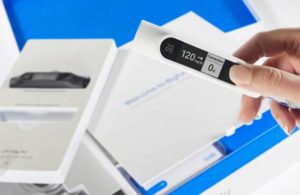
Initially an entrepreneur, Brewer got involved with the Juvenile Diabetes Research Foundation (JDRF) and the Artificial Pancreas Project for developing a closed-loop insulin delivery system after his son was diagnosed with type 1 diabetes. After spending about four years as JDRF’s CEO, Brewer partnered with Bryan Mazlish — whose son also received a type 1 diagnosis — in 2014 to launch Bigfoot Biomedical.
Mazlish was the first person in the world to hack into an insulin pump and continuous glucose monitor (CGM) and enable a do-it-yourself closed-loop insulin dosing system, Brewer told Drug Delivery Business News.
“It turned my attention to the opportunities as an entrepreneur that I might be able to pursue, and then doing so with him, to see what we could add to the equation in terms of industry and how you can take technologies and make them usable and easy and ultimately make life more convenient, easy and safe for people with insulin-requiring diabetes,” said Brewer, who is CEO of Bigfoot. “We’ve been on this journey for about seven years now.”
In that time, Bigfoot has developed a number of technologies that are deployable across the spectrum of the insulin-dependent population, with the company eventually launching the Bigfoot Unity system last year.
An all-in-one offering
Bigfoot Unity represents what Brewer calls a “transformational attempt” to simplify CGMs and the data they produce to tell people how much insulin to take at a given point in time. It’s comprised of a smart insulin pen cap, which takes data from a CGM and informs the patient of exactly how much insulin they need.
The company has partnered with Abbott and the FreeStyle Libre 2 CGM sensor that integrates into its system, with the pen caps “talking” to the FreeStyle Libre as part of the all-encompassing design of Bigfoot Unity.
Everything in Bigfoot Unity comes in one box, with the holistic platform trained by Bigfoot and supported by Bigfoot as opposed to different components provided by different companies. The platform also supports patients who are switched from one brand of insulin to another, with the structure in place to send them a new pen cap that fits with the insulin pen from the new manufacturer.
“People don’t want data. They want to know what to do and how to stay safe and that’s what Bigfoot Unity does. … We think it really points the way forward in terms of the consumerism of healthcare,” Brewer said. “It’s a great example of how you can make something simpler, easier and more accessible to a large population of people.”
Utilizing an innovative business model
The company’s overall business model centers around reimbursement, not only for the solution offered by Bigfoot, but for the time and effort spent supporting patients, Brewer said. The company is taking the remote physiologic monitoring CPT codes that are billable for chronic diseases — including cardiac disease and COPD — and bringing it to diabetes.
Bigfoot Unity tracks decisions and gets the information back to clinicians through the provided tools. They then can tweak insulin settings for personalized therapy to create a feedback loop that generates data for the future, with the whole cycle reimbursed by the remote physiologic monitoring codes.
The company will contract with clinics, healthcare systems or even individual, independent providers to provide what becomes a service that is built on a per-patient, per-month basis. Then the clinics, healthcare systems and/or providers handle reimbursement and make decisions on what is appropriate for therapy and supporting patients.
“We’re a business partner now of the clinics to help them have patients do better, to more scalably treat more patients more effectively, and then also to have economics that support that efficient scaling,” Brewer said. “The business model is a key aspect of the innovation that we bring. And we think it really provides an opportunity both to align incentives between payors and ourselves.”
What’s ahead
With Bigfoot Unity as a start, plans are in place for the development of closed-loop systems for type 1 diabetes, as well as the development of a product to address the needs for type 2 diabetes patients who are beginning their journey on basal insulin.
From Brewer’s perspective, all people with diabetes are in different stages and have different preferences for things like what they want to wear and whether they want to give injections, meaning there has to be a large number of different solutions. With that in mind, the company intends to offer a variety of options over time, with Bigfoot Unity the first to market to kickstart things by addressing the largest unaddressed needs.
“We’re at a meaningful inflection point here where we’ve just launched this system and we’re seeing some great adoption,” Brewer said. “We have a couple dozen clinics prescribing it to a few hundred patients, and we’re seeing some really big changes in those people’s lives reported by them. It’s making their lives easier and they’re really happy with the support and to have a partner in this journey with diabetes.”
